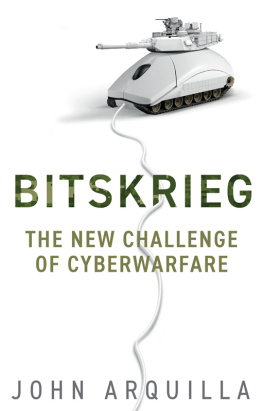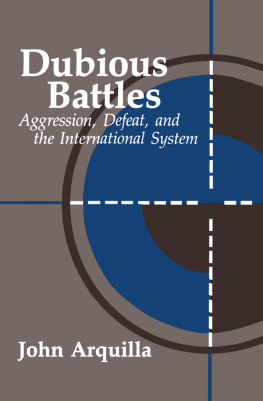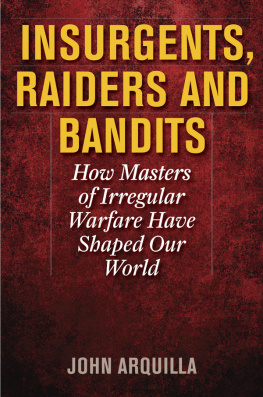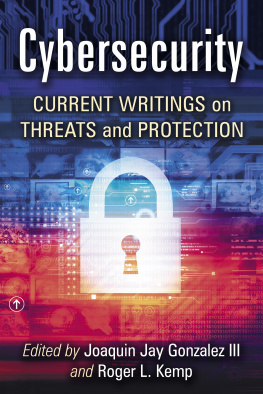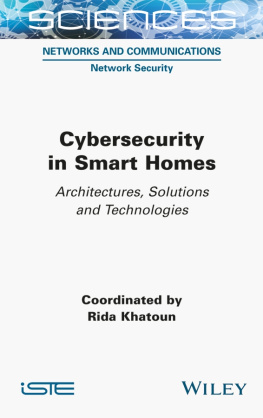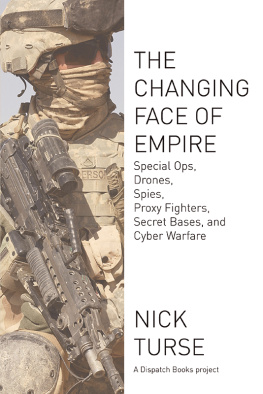
Bitskrieg
The New Challenge of Cyberwarfare
John Arquilla
polity
Copyright Page
Copyright John Arquilla 2021
The right of John Arquilla to be identified as Author of this Work has been asserted in accordance with the UK Copyright, Designs and Patents Act 1988.
First published in 2021 by Polity Press
Polity Press
65 Bridge Street
Cambridge CB2 1UR, UK
Polity Press
101 Station Landing
Suite 300
Medford, MA 02155, USA
All rights reserved. Except for the quotation of short passages for the purpose of criticism and review, no part of this publication may be reproduced, stored in a retrieval system, or transmitted, in any form or by any means, electronic, mechanical, photocopying, recording, or otherwise, without the prior permission of the publisher.
ISBN-13: 978-1-5095-4362-5
ISBN-13: 978-1-5095-4363-2 (pb)
A catalogue record for this book is available from the British Library.
Library of Congress Cataloging-in-Publication Data
Names: Arquilla, John, author.
Title: Bitskrieg : the new challenge of cyberwarfare / John Arquilla.
Other titles: New challenge of cyberwarfare
Description: Cambridge ; Medford : Polity Press, 2021. | Includes bibliographical references and index. | Summary: Pioneer of the concept of netwar explains why Bitskrieg is here to stay-- Provided by publisher.
Identifiers: LCCN 2020057162 (print) | LCCN 2020057163 (ebook) | ISBN 9781509543625 (hardback) | ISBN 9781509543632 (paperback) | ISBN 9781509543649 (epub)
Subjects: LCSH: Cyberspace operations (Military science) | Information warfare. | Deterrence (Strategy) | Computer security.
Classification: LCC U167.5.C92 A77 2021 (print) | LCC U167.5.C92 (ebook) | DDC 355.4/1--dc23
LC record available at https://lccn.loc.gov/2020057162
LC ebook record available at https://lccn.loc.gov/2020057163
by Fakenham Prepress Solutions, Fakenham, Norfolk NR21 8NL
The publisher has used its best endeavors to ensure that the URLs for external websites referred to in this book are correct and active at the time of going to press. However, the publisher has no responsibility for the websites and can make no guarantee that a site will remain live or that the content is or will remain appropriate.
Every effort has been made to trace all copyright holders, but if any have been overlooked the publisher will be pleased to include any necessary credits in any subsequent reprint or edition.
For further information on Polity, visit our website: politybooks.com
Dedication
For Peter and Dorothy Denning
Epigraph
The modern age has a false sense of superiority because of the great mass of data at its disposal. But the valid criterion of distinction is rather the extent to which man knows how to form and master the material at his command.
Johann Wolfgang von Goethe (1810)
Knowledge must become capability.
Carl von Clausewitz (1830)
[Cyber attacks] can actually bring us to our knees.
Admiral Mike Mullen (2011)
There are only two types of companies: Those that have been hacked and those that will be.
Robert Mueller (2012)
Table of Contents
Guide
Pages
Acknowledgments
It has been my privilege, over the past four decades, to sit beside and learn from some of the finest minds, and individuals, dedicated to understanding the implications of the Information Age for society and security. Early on, at RAND, Willis Ware made me aware that, for all the good connectivity brings, vulnerability is its inevitable flip side. Tom Rona understood that cyberwar was going to have profound effects, one day, on battle. Captain Richard ONeill, USN (Ret.) knew this, too, and convinced higher-ups in the Pentagon that the work my research partner David Ronfeldt and I were doing merited their support. Dick also helped found our Highlands Forum, which had a 20-year run raising awareness about Cyber-Age issues that matter. Technology journalist John Markoff and futurist Paul Saffo are both responsible for expanding my mind. As are some of the worlds top hackers, especially M and MHN. At the Naval Postgraduate School, Peter and Dorothy Denning, to whom this book is dedicated, have shared their insights and helped me to sharpen my thinking. As has Ryan Maness. For many years, the Honorable Leon Panetta and his wife Sylvia have welcomed me into the cyber activities of the Institute they oversee. At Polity, Louise Knight is all one could ever ask for in an editor: affirming, wise, assertive when needed.
Foreword
Communication and information lie at the heart of victory in war. The ability to communicate securely and ascertain the movements of the enemy correctly are the foundation of the safety of troops and the confidence of leadership. With the need to communicate over vaster and vaster distances, however, came hidden risks the adversary could more easily access that information. Well-known examples are those of the Allied advantage in World War II with the successful breaking of both the German and Japanese coded battle information the Ultra and the Magic intercepts.
Today, we have entered an even more dangerous era, an era that will call upon our entire nations resources material, to be sure, but moral and intellectual as well. Very small numbers of persons utilizing modern computers can deal devastating losses to advancing armies and to civilian populations. Some experts in cyberwarfare have conjectured that there may never be a final victory in cyberwars. Rather, victory may well involve merely avoiding defeat.
In the history of warfare, the initial periods when new weapons were developed were often the most dangerous. The possessors of the new technology saw themselves as having a unique advantage, but one that was fleeting, creating a use it or lose it mentality. It was also the period when the technology and its consequences were least understood. The result was devastation unequaled for the time.
John Arquillas Bitskrieg: The New Challenge of Cyberwarfare, an eloquent and lucid study, peppered with relevant historical examples worthy of a book themselves, provides a valuable analysis that will inform both a general audience and the cyber expert. Arquilla argues that: Cyberwar would entail changes in each of these areas: e.g., from larger formations to smaller, nimbler, highly networked units; from mass-on-mass engagements to supple swarm battle tactics; and to the larger strategic goal of knowing more than the enemy about the composition, disposition, and intentions of the forces on both sides. He brings the reader up to date on the latest advances in cyberwar against an enemy that is anonymous, projecting force disproportionate to its size, strength, or wealth.
Arquilla acknowledges that the United States projects a confirmed military superiority in its aircraft carriers and the planes that they carry, as well as a nuclear arsenal of the highest quality. But the easy access of information power on the Internet changes this advantage. A country like Iran with gunboat swarming tactics, or North Korea with cyberwarfare, can neutralize this seemingly invincible force. In the cyber domain, even small non-state actors can challenge the superpowers.
These challenges were known and feared when I served as Director of the CIA and Secretary of Defense (200913). Seven years, however, in the cyber era is more like a century of change in former times. So, in a manner of speaking, Arquilla picks up where my responsibilities left off. He focuses on the latest developments in cyberwarfare and the need for: secure connectivity and information; a major change in the US military and its organizational design and configuration; and a commitment to arms control negotiations related to cyber.
Next page
